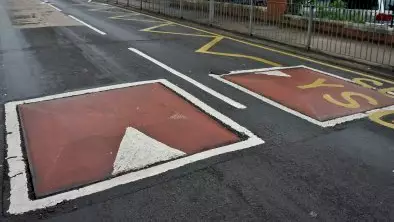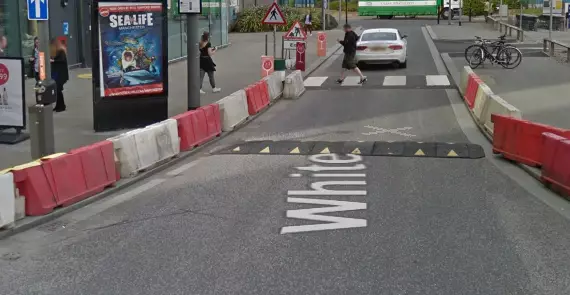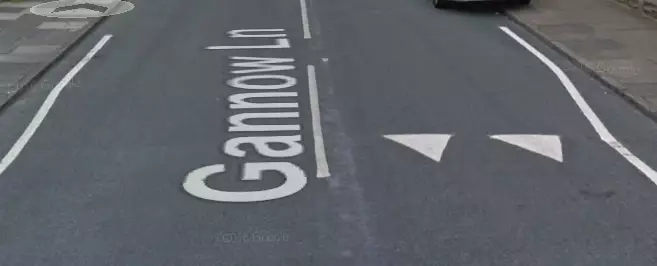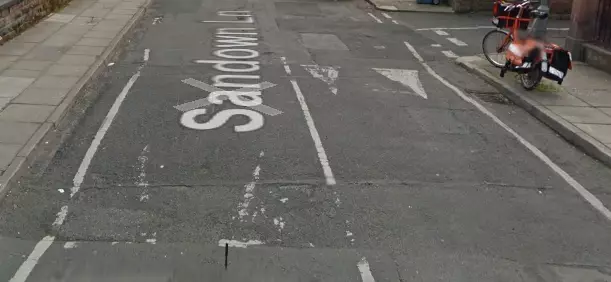
Ask any driver what makes a trip in the car arduous and there'll be a few answers: people who drive 10mph under the limit, gridlock, rubber-neckers, and... speed bumps.
Yes, those little humps in the road that force you to slow down and disturb your comfort when driving over them - not to mention ruining the bumpers and underside of many a low-riding car.
But now it turns out that not only do they increase our stress levels, they also cause extra pollution.
As if those two weren't bad enough, further fuel to the fire comes in the form of ruining suspension on vehicles and slowing down emergency crews.

Credit: Google Maps
Councils have now been told to scrap the humps, also known as sleeping policemen, to cut pollution with harmful, growing, levels of nitrogen dioxide - particularly from diesel engines.
By slowing down and speeding back up again, it means extra emissions are made with a new report suggesting pollution is doubled as a result.
Research by Imperial College London found that driving over speedbumps in a diesel car produces 98 percent more nitrogen dioxide than driving over road cushions - the mini-speed bumps that don't cover the whole road.
Introduced in the 1970s in an effort to save lives, now, with pollution levels on many roads breaching the legal limits of hazardous nitrogen dioxide from diesel engines, scrapping the bumps could cost millions to the tax payer.

Credit: Google Maps
Advert
Speaking with the Daily Mail, RAC spokesman Simon Williams, praised the move.
"We welcome the news on speed bumps, but we still need traffic calming measures," he said.
"Some speed bumps can be too severe. So, from a road traffic safety point of view, speed cushions will be more effective. I think motorists will welcome this."
However, the head of road safety at the Royal Society for the Prevention of Accidents (RoSPA), Kevin Clinton, warned deaths on the roads could soon increase as a result.
He said: "RoSPA agrees that air pollution caused by motor vehicles, especially older diesel vehicles, is a serious risk to public health and must be reduced.
"However, it is crucial that measures to reduce air pollution do not inadvertently increase the risk of road deaths and injuries."

Credit: Google Maps
The environment secretary, Michael Gove, also laid out plans to reduce concentrations of nitrogen dioxide by suggesting that councils could retro-fit polluting buses and other forms of public transport, encourage the use of electric vehicles by ensuring adequate charge points, and push the use of car-sharing and car clubs.
Advert
The government may speak of scrapping road bumps because of diesel engines, however, they too may be scrapped.
This follows news this Britain will no longer produce petrol or diesel cars by 2040, as an ambitious £3 billion ($3.9bn) programme aims to help to clean up the dirty air around our roads
Featured Image Credit: PATopics: Cars